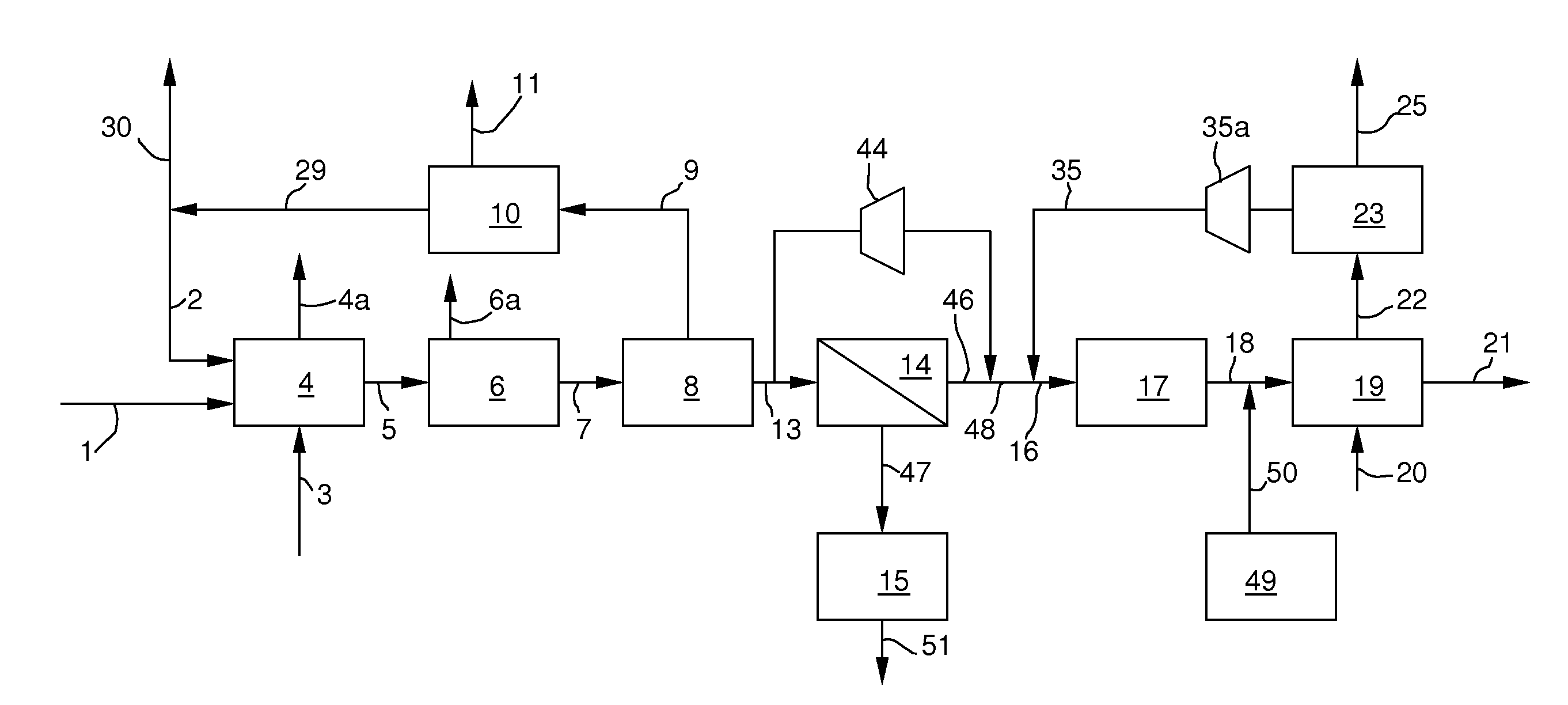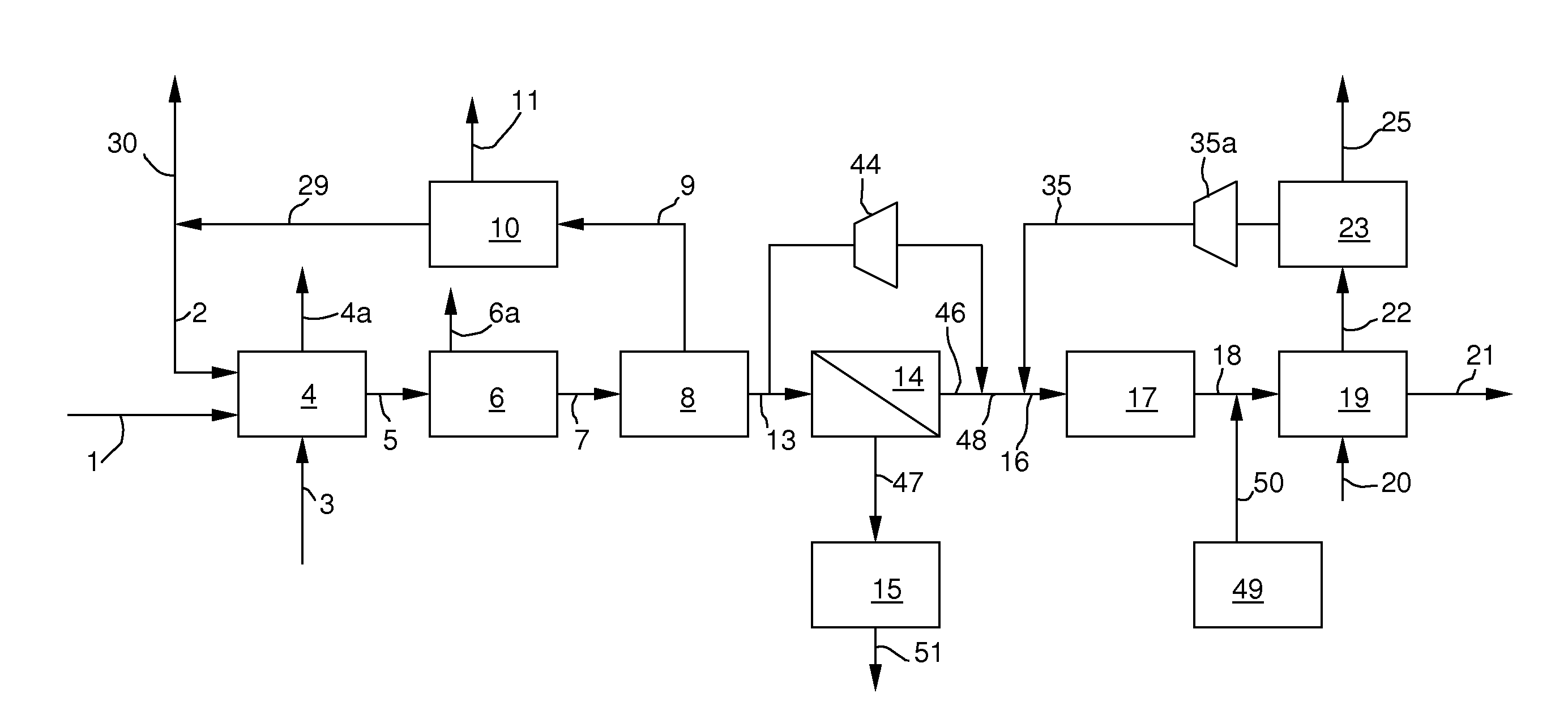Process for Production of Elemental Iron
a technology of elemental iron and process, which is applied in the field of process for preparing elemental iron, can solve the problems of catalyst deactivation in presence of sulphur, carbon formation on catalyst,
- Summary
- Abstract
- Description
- Claims
- Application Information
AI Technical Summary
Benefits of technology
Problems solved by technology
Method used
Image
Examples
Embodiment Construction
[0014]In the DRI process an iron ore feed is contacted with the reducing gas comprising H2 and CO to obtain elemental iron and an off-gas. Exemplary DRI processes are those mentioned earlier.
[0015]In a typical DRI process the iron ore feed is usually in the form of pellets or in the lump form or a combination of the two. The iron ore is supplied to a heated DRI furnace or to a set of reactors through which it descends by gravity at superatmospheric pressure, e.g., 1.5-12 bar. Iron ore feed is reduced in the said DRI furnace or set of reactors by the action of counterflowing reducing gas that has high H2 and CO contents. Process specifics of the DRI processes are described for example in “Kirk-Othmer Encyclopedia of Chemical Technology,” fourth edition, volume 14, John Wiley & Sons, 1985, pages 855-872.
[0016]The reducing gas is used to remove oxygen from the iron oxide comprised within the iron ore feed. The reducing process can be illustrated by the following reaction, where H2O and...
PUM
| Property | Measurement | Unit |
|---|---|---|
| pressure | aaaaa | aaaaa |
| pressure | aaaaa | aaaaa |
| pressure | aaaaa | aaaaa |
Abstract
Description
Claims
Application Information
 Login to View More
Login to View More - R&D
- Intellectual Property
- Life Sciences
- Materials
- Tech Scout
- Unparalleled Data Quality
- Higher Quality Content
- 60% Fewer Hallucinations
Browse by: Latest US Patents, China's latest patents, Technical Efficacy Thesaurus, Application Domain, Technology Topic, Popular Technical Reports.
© 2025 PatSnap. All rights reserved.Legal|Privacy policy|Modern Slavery Act Transparency Statement|Sitemap|About US| Contact US: help@patsnap.com


